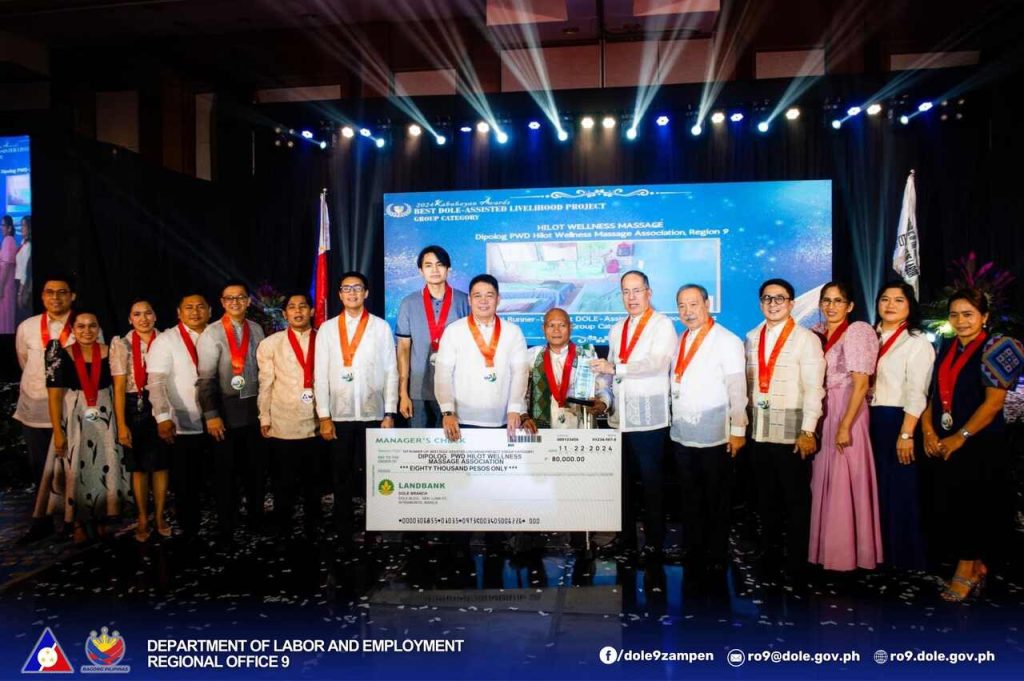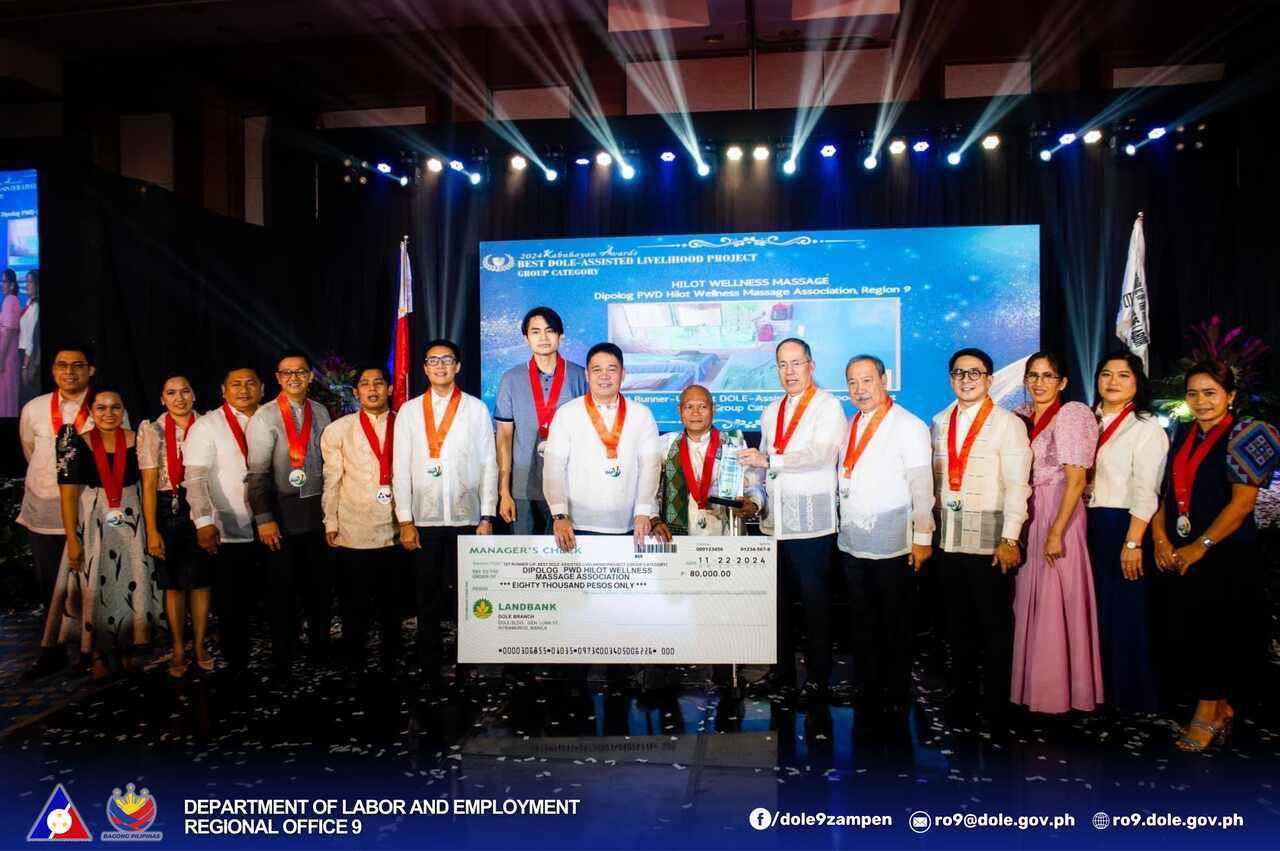The DOLE Livelihood Assistance Program under the DOLE Integrated Livelihood Program (DILP) aims to provide financial support and opportunities for self-employment to marginalized workers and vulnerable groups. This initiative offers assistance to individuals and groups through either direct administration by Department of Labor and Employment (DOLE) offices or partnerships with Accredited Co-Partners (ACPs).
By following the program’s guidelines, eligible beneficiaries can access livelihood assistance to improve their income and living conditions. This guide provides a detailed explanation of how to apply for the DOLE Livelihood Assistance Program, including requirements, processes, and eligibility criteria.

Program Overview
The DOLE Livelihood Assistance Program, also known as the DOLE Integrated Livelihood Program (DILP), aims to support marginalized workers by providing grants for sustainable livelihood projects. Established to reduce poverty and promote self-reliance, the program is guided by the Labor Code of the Philippines and other labor-related laws. It targets vulnerable groups, including displaced workers, low-wage earners, and indigenous peoples, empowering them with financial and technical assistance. The program operates nationwide, offering aid through DOLE Regional Offices or Accredited Co-Partners such as NGOs and LGUs. Its implementation ensures compliance with government policies on the proper utilization of public funds.
Benefits
This DOLE program provides a variety of benefits designed to help marginalized individuals and groups achieve sustainable income through self-employment. These benefits both address the financial and technical needs of beneficiaries to successfully establish or expand small-scale livelihood projects.
- Starter Kit or Livelihood Assistance Package – Provides tools, equipment, and raw materials needed for a specific livelihood project.
- Financial Grants – Offers monetary support to fund small business ventures without repayment requirements.
- Training and Skills Development – Includes free capacity-building seminars to enhance technical and entrepreneurial skills.
- Technical Assistance – Offers guidance in project proposal development, implementation, and management.
- Market Linkage Support – Helps beneficiaries connect with markets to sell their products or services.
- Social Protection Coverage – Provides access to government-mandated benefits like insurance to ensure safety and security during project implementation.
Target Beneficiaries
It is open to several categories of applicants, including the following:
- Working Poor and Vulnerable Workers
- Self-employed individuals with insufficient income
- Marginalized farmers and fisherfolk
- Seasonal workers and low-wage earners
- Special Groups
- Women and youth
- Persons with disabilities (PWDs)
- Indigenous peoples
- Parents/guardians of child laborers
- Senior citizens
- Displaced or Affected Workers
- Workers displaced by natural disasters or business closures
- Victims of armed conflict
- Rebel returnees
- Accredited Co-Partners (ACPs)
- Non-government organizations (NGOs)
- LGUs, state universities and colleges (SUCs)
- Private organizations, cooperatives, and unions
Eligibility
To qualify for the program, applicants must belong to specific groups considered vulnerable, marginalized, or in need of financial support for self-employment. The following criteria ensure that the assistance reaches individuals and organizations who can benefit most from the program.
For Individual Beneficiaries
- Must be part of the working poor, underemployed, or self-employed individuals with insufficient income.
- Belong to marginalized groups such as landless farmers, fisherfolk, and unpaid family workers.
- Be a displaced worker due to natural disasters, company closure, or termination.
- Include special sectors like persons with disabilities (PWDs), senior citizens, women, and youth.
- Parents or guardians of child laborers, victims of armed conflict, and rebel returnees.
For Accredited Co-Partners (ACPs)
- Must be a registered people’s organization, cooperative, or non-government organization.
- Local government units (LGUs), state universities and colleges (SUCs), and other government agencies may also qualify.
- Demonstrate capability to implement, manage, and sustain livelihood projects.
- Provide at least 20% equity in the total project cost (in cash, kind, or services).
- Must have no outstanding issues with fund liquidation from previous government grants.
Documentary Requirements
To prove your eligibility for the program, you will be required to submit the following for evaluation:
For Local Government Units (LGUs), SUCs, and Government Agencies
- Application Letter signed by the Local Chief Executive or authorized official, addressed to the DOLE Regional Director.
- Detailed Project Proposal including equity participation.
- Board or Sangguniang Bayan (SB) Resolution authorizing the application.
- Individual Beneficiary Profile (with photos) and the ACP profile.
- Copy of the LGU’s Local Development Plan for labor and employment services.
- Certification from DOLE’s Accountant that all previous funds have been liquidated.
For Other ACPs (e.g., NGOs, Cooperatives)
- Application Letter addressed to the DOLE Regional Director.
- Project Proposal with at least 20% equity participation.
- List of individual beneficiaries (with photos).
- ACP Certificate of Accreditation.
- Audited financial reports for the last three years (or for the duration of operation if less than three years).
- Sworn affidavit stating no conflict of interest among officers and DOLE staff.
Application Procedures
To make the application process simpler for you, we listed the step-by-step procedures that you need to follow:
Step 1. Submit the Application
Submit all required documents to the nearest DOLE Regional, Provincial, or Field Office. A designated focal person from the applicant organization should coordinate directly with DOLE for this process.
Step 2. Evaluation of Documents
DOLE will review the completeness of your submission:
- If documents are complete, the application proceeds to the next stage.
- If documents are incomplete, the proponent will be notified for corrections or additional submissions.
Step 3. Initial and Detailed Evaluation
- DOLE will evaluate the project proposal to determine feasibility and compliance.
- The Technical Support Services Division (TSSD) conducts a thorough appraisal and validation.
Step 4. Approval or Disapproval
The DOLE Regional Office will approve or disapprove the application based on evaluation results:
- Approved applications will receive a Notice of Approval and a schedule for signing the Memorandum of Agreement (MOA).
- Disapproved applications will receive a Notice of Disapproval citing deficiencies.
Step 5. Release of Funds
After MOA signing, funds will be released based on the availability of resources. It’s important to note that the fund release process is separate from the evaluation and approval timeline.
Where to Get and Submit the Application Forms
Application forms for the DOLE Livelihood Assistance Program can be obtained from the nearest DOLE Regional, Provincial, or Field Office. Applicants may also request forms from Accredited Co-Partners (ACPs) such as NGOs, LGUs, or cooperatives if they are working through these organizations. Once completed, the forms and required documents must be submitted to the respective DOLE office or through the designated ACP for evaluation and processing.
Fees and Processing Time
The DOLE Livelihood Assistance Program does not charge any fees to applicants, making it accessible to all eligible beneficiaries. The standard processing time for applications is approximately 13 working days, excluding the release of funds, which depends on their availability. Applicants are advised to ensure their documents are complete to avoid delays during the evaluation and approval process.
Important Considerations
For a hassle-free application for the DOLE Livelihood Assistance Program, interested applicants are advised to keep these things in mind:
- Monitoring of Funds: Funds granted to ACPs retain their character as public funds. This means that the use and liquidation of funds must comply with government auditing standards, such as the Commission on Audit (COA) guidelines.
- Equity Participation: For ACPs, equity contribution is required. This can be in the form of labor, cash, or materials equivalent to at least 20% of the total project cost.
- Follow-Up Communication: Applicants should regularly communicate with the DOLE office handling their application to track progress and address any issues.
- Sustainability: Approved beneficiaries are encouraged to develop business plans that outline long-term sustainability for their livelihood projects.
Video: Application for Livelihood Assistance (DILP Project)
For a visual walkthrough on the application procedures, requirements, and everything else you need to know to apply for the DOLE Livelihood Assistance Program, you may check out this video from DOLE Region XI – Labor Communications.
Summary
The DOLE Livelihood Assistance Program offers a much-needed financial assistance to marginalized workers and vulnerable groups. It was designed to help them start or expand their small businesses, allowing them to enjoy accessible opportunities for livelihood development, and experience government support towards economic growth and improved well-being. Following this guide will help ensure a smooth application process and increase your chances of benefiting from the program. For inquiries and other concerns, you may visit the nearest DOLE Regional, Provincial, or Field Office. Contact details are available on the official DOLE website or through their hotline services.
